
Interview • Tectales
Humanising wearable health technologies
Designer Leah Heiss considers her work as creating “emotional technologies”, i.e. wearable devices based on human-centred design principles. For her, empathy is everything!

Designer Leah Heiss considers her work as creating “emotional technologies”, i.e. wearable devices based on human-centred design principles. For her, empathy is everything!

The discovery of two novel biomarkers, called FKBPL and CD44, has the potential to change the way preeclampsia is managed according to research published in the Journal of Clinical Endocrinology and Metabolism. Preeclampsia can cause high blood pressure and organ failure in mothers and lead to preterm births and even stillbirth.

A new joint report from the American Diabetes Association (ADA) and the European Association for the Study of Diabetes (EASD) presents the largest venture ever on precision medicine in diabetes. The report includes a detailed overview and roadmap for how this new approach to diabetes medicine can be evaluated and implemented into clinical practice.
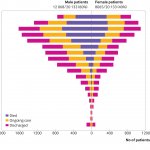
Age, male sex, obesity, and underlying illness have emerged as risk factors for severe and fatal cases of COVID-19 in the UK, according to the largest cohort study to date published by The BMJ. As the largest prospective observational study reported worldwide to date, it provides a comprehensive picture of the characteristics of patients hospitalised in the UK with COVID-19 and their outcomes.…
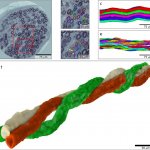
In an international collaboration led by Lund University in Sweden, researchers have used synchrotron light to study what happens to the nerves in diabetes. The technique shows the 3D-structure of nerve fibers in very high resolution. “This knowledge can be used to map mechanisms for how nerve fibers atrophy and grow back. It means that we can better understand how diabetes affects the nerves…

The COVID-19 pandemic has brought more strain on healthcare systems but it has also highlighted the necessity to integrate social care to healthcare to protect the most vulnerable populations in ageing societies, an eminent healthcare consultant told us in an exclusive interview.
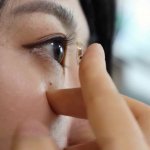
Diabetes is called an incurable disease because once it develops, it does not disappear regardless of treatment in modern medicine. Having diabetes means a life-long obligation of insulin shots and monitoring of blood glucose levels. Recently, a research team at Pohang University of Science and Technology developed a wirelessly driven ‘smart contact lens’ technology that can detect diabetes…

The production of highly sensitive sensors is a complex process: it requires many different steps and the almost dust-free environment of special cleanrooms. A research team from Materials Science at Kiel University (CAU) and from Biomedical Engineering at the Technical University of Moldova has now developed a procedure to produce extremely sensitive and energy-efficient sensors using 3D…
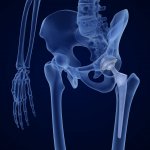
BellaSeno GmbH, a company developing absorbable scaffolds using additive manufacturing technologies, announced a collaboration with Charité – Universitätsmedizin Berlin under the recently established SyMBoD consortium. Under the agreement, BellaSeno will design and manufacture personalized, 3D-printed, absorbable implants suitable for the treatment of diabetes patients with bone defects. The…

The world’s first licensed, downloadable artificial pancreas app for people with type 1 diabetes now launched, based on over a decade of research by Professor Roman Hovorka at the University of Cambridge and Cambridge University Hospitals NHS Foundation Trust. The CamAPS FX app works with an insulin pump and a glucose monitor to automatically deliver insulin to people living with the condition…

An organic compound produced by the gut flora – the metabolite 4-Cresol – is considered to have protective effects against both type 1 and 2 diabetes, notably by stimulating the growth of the insulin-producing pancreatic beta cells. This is according to a new study led by Inserm researcher Dominique Gauguier at the Environmental Toxicology, Therapeutic Targets, Cell Signaling and Biomarkers…
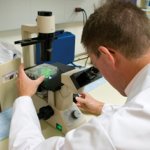
Eric Prossnitz, PhD, from the University of New Mexico Health Services and his team hope to help 93 million obese Americans fight their fat. In a paper published in Science Translational Medicine, they reported that G-1, a cancer-fighting compound they discovered some years ago, reduces fat in obese mice. Although G-1 is currently in phase 1 clinical trials for cancer, Prossnitz and his team are…

Diseases such as cardiovascular diseases, cancer or certain lung diseases are among the most common non-natural causes of death today and account for about 70 percent of deaths worldwide. They are defined by the World Health Organization (WHO) as non-communicable because they are assumed to be caused by a combination of genetic, lifestyle and environmental factors and cannot be transmitted…

A protein newly identified as important in type 1 diabetes can delay onset of the disease in diabetic mice, providing a new target for prevention and treatment in people, according to research led by scientists at the Department of Energy’s (DOE) Pacific Northwest National Laboratory and Indiana University School of Medicine. Because type 1 diabetes is incurable and has serious lifelong health…

Using lipidomics, a technique that measures the composition of blood lipids at a molecular level, and machine learning, researchers at Lund University in Sweden have identified a blood lipid profile that improves the possibility to assess, several years in advance, the risk of developing type 2 diabetes. The blood lipid profile can also be linked to a certain diet and degree of physical activity.…

In animals, a vaccine modifying the composition and function of the gut microbiota provides protection against the onset of chronic inflammatory bowel diseases and certain metabolic disorders, such as diabetes and obesity. This research was conducted by the team of Benoît Chassaing, Inserm researcher at Institut Cochin (Inserm/CNRS/Université de Paris), whose initial findings have been…

Viscosity sensors are used by scientists fighting various diseases, such as Alzheimer's and Diabetes. Vilnius-based chemist Aurimas Vyšniauskas has enhanced their measuring capabilities. This breakthrough will equip researchers with additional tools to study living cells and how they change in a sick organism.

The traditional classification of diabetes, mainly in type 1 and type 2 diabetes, has been challenged by studies from Scandinavia. In the current issue of The Lancet Diabetes & Endocrinology, researchers from DDZ together with colleagues from DZD and University of Lund published a cluster analysis of diabetes allowing for phenotyping into subgroups, which extended the findings by showing that…

A new study harnessed the unique genetic history of the people of Finland to identify variations in DNA that might predispose certain individuals to disease, whether or not they are Finnish themselves.

Prebiotics are currently a preferred treatment for certain metabolic disorders, as they can restore the balance of dysfunctional gut microbiota, and improve the body’s metabolism. However, these substances have to be used at high doses, which can result in patients experiencing bloating and flatulence. A research group led by Matteo Serino, Inserm researcher at the Digestive Health Research…

For patients with Type 1 diabetes who don’t respond well to insulin or have other serious medical complications caused by their disease, pancreas transplantation offers hope for a cure. But obese candidates who need a pancreas transplant often are denied the procedure because of poor outcomes, including high rates of incision infections, which are linked to an increased risk for failure and…
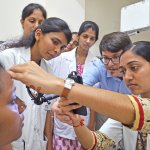
About one in ten people in southern India is diabetic. Around one in three suffers from a so-called diabetic retinopathy (DR), a disease of the retina caused by diabetes. Untreated, DR is often the cause of visual impairment and blindness. However, many of those affected have symptoms only in the late stages of the disease. Early detection is therefore all the more important in order to intervene…
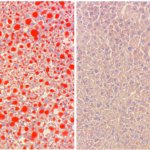
Eating too much fat and sugar makes you overweight and unhealthy – even young children know that. But why is that, and is there anything we can do about it? In a study published in the journal Cell, Prof. Jens Brüning's research group at the Max Planck Institute for Metabolism Research in Cologne has shown how altering fat metabolism in the liver can make obese mice thinner, despite eating an…

It’s undeniable: the bulk of our population is growing older. Yet, this demographic change has not altered laboratory medicine: the reference values for many analyses are still based on data of a younger cohort. Inevitably this could lead to serious errors in the interpretation of older patients’ test results.

People with both diabetes and uncontrolled high blood pressure who used a smartphone app to monitor their blood pressure remotely, get tips on healthful living and connect with a health coach saw significant declines in their blood pressure within six weeks.